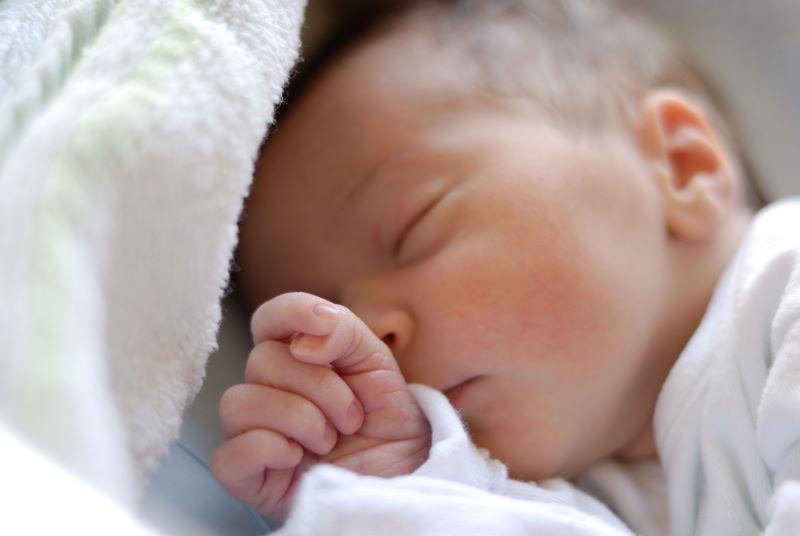Get Healthy!

- Cara Murez
- Posted March 10, 2023
Do C-Section Babies Miss Out on Mom's Helpful Microbes? Maybe Not
New evidence finds that babies born by cesarean section may not miss out on essential microbes.
Though these newborns receive less of their mother's gut microbiome during birth, they can obtain their mom's microbes in breast milk and in other ways.
"We wanted to have a better idea of how the infant microbiome develops in different parts of their bodies and how it's influenced by factors such as birth mode, antibiotic use and lack of breastfeeding,"said study co-author Wouter de Steenhuijsen Piters. He is a physician and data scientist at the University Medical Center Utrecht, in the Netherlands.
The microbiome is the collection of microorganisms living in parts of the body, such as the digestive system.
Babies are generally considered sterile before birth. To understand how their microbiome develops during the first month of life, researchers repeatedly sampled 120 Dutch mothers and soon-to-be-born babies. The findings were published March 8 in Cell Host & Microbe.
The research team collected skin, nose, saliva and gut microbiome samples from the newborns two hours after birth and when they were 1 day old, 1 week old, 2 weeks old, and 1 month old.
The team also collected skin, breastmilk, nose, throat, fecal and vaginal microbiome samples from the mothers. They wanted to determine which of these sources were "seeding"the babies' microbiomes.
The investigators then analyzed these results in the context of several factors thought to influence microbiome transfer, including mode of delivery, antibiotic use and breastfeeding.
"We saw that many niches of the mother are important for the transmission of microbes, and if some of these pathways are blocked for one reason or another -- in this case, we saw that happening with the cesarean section -- then these microbes can still reach the infant through other paths,"de Steenhuijsen Piters said in a journal news release.
About 59% of a baby's microbiome comes from its mother, regardless of birth route, the study authors said.
Cesarean-born babies received fewer microbes from their mother's vaginal and fecal microbiomes, but acquired more microbes from breastmilk, the researchers found.
"Microbiome transfer and development are so important that evolution has ensured that those microbes are transferred one or another way from mother to child,"said co-author Debby Bogaert, a physician scientist at the University of Edinburgh in Scotland. "Breastfeeding becomes even more important for children born by cesarean section who do not receive gut and vaginal microbes from their mom."
"It's a smart system," de Steenhuijsen Piters said. "And it makes sense from an evolutionary perspective that these types of pathways are redundant to ensure that the child can begin life with the appropriate 'starter kit.'"
The researchers said that they would like to study other influences on infant microbiome development.
"We could see that the maternal microbiome explains almost 60% of the infant's total microbiome, but there's still 40% that we don't know about,"de Steenhuijsen Piters said. "It would be interesting to stratify that unknown fraction to see where all the microbes come from; whether fathers contribute, for example, or siblings, or the environment."
The research team would also like to better understand how microbiome development in infants relates to long-term health "in terms of things like allergies and asthma,"Bogaert said. "In the future, we might be able to utilize this knowledge to help prevent, diagnose, or treat health problems."
More information
The U.S. National Institutes of Health has more on the microbiome.
SOURCE: Cell Host & Microbe, news release, March 8, 2023
